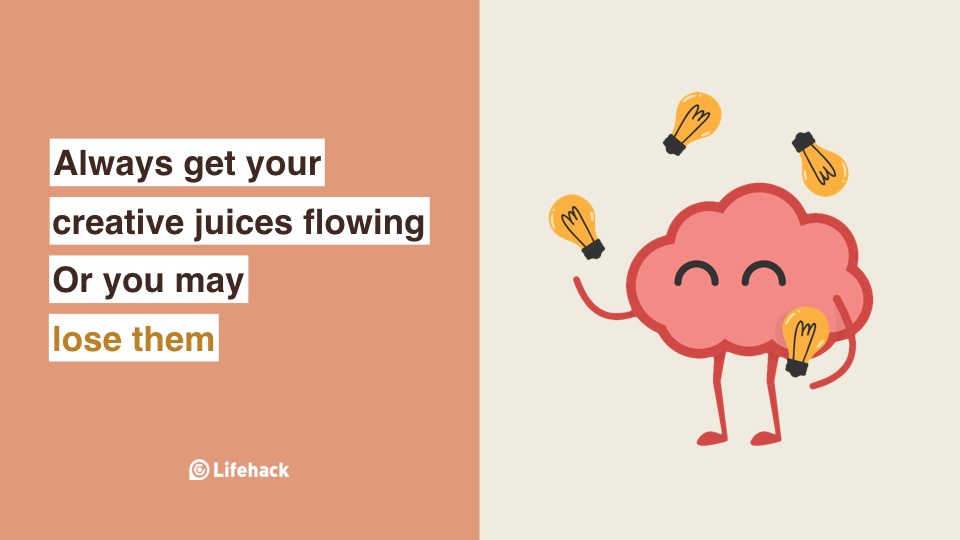 Can't Think of Creative Ideas Easily? Try These 5 Tricks to Become an Idea Machine
Can't Think of Creative Ideas Easily? Try These 5 Tricks to Become an Idea MachineDo you have a victim's personality? 12 Ways to SayBy: Being said that you have a victim personality tends to cause defensiveness in most of us. We've suffered so much. How dare someone relieve our suffering?! But they're not. They are trying to point out that, without even realizing it, we are choosing to continue our suffering, and actually use it to catch us. We are taking the power of victimization, but by giving up our power to heal. [Read our "?' union piece for more about how this works.] Admitting that you are trapped in a victim personality is a necessary step to take control of your own life. It leaves you free to learn to live in ways that feel good, instead of the pattern that diminishes and exhausts victimity tends to be. So how do you know if you do or don't live your life in a victim mentality? 12 signatures that live your life as a victim.1 You often feel helpless. Note how often you experience a sense that life is "only difficult" and beyond you. An adult who takes responsibility for his own life feels briefly overwhelmed but sees quickly things they can do to handle things. The victims throw their hands and do the following...2. You have a tendency to complain. The complaint replaces taking action, and gains attention and others, things that a victim yearns internally.3. You're rarely mad. One might think that a victim would be furious all the time, and some victims might be. But they often realize that it tends to drive others away, making it difficult to gain sympathy and attention, that again are the true desires of those with a victim's mentality. If you are living your life from a victim's space it is more likely that you spend a lot of time being meek or 'all suffering'. Of course under that handle is often a hidden warehouse of .By: 4. However, you are convinced that those around you are always upset or angry with you. Convincing you can 'read' other people and are sure that they are angry with you can act as false proof that they are against you, and therefore responsible for why you feel bad. It also means that you can stay helpless, because if you tell yourself everyone doesn't like you, then you have an excuse not to ask for help and advance in life.5. You expect other people to know how you feel. With your own belief you know what others feel about you, you in turn expect them to also know how it feels. Expecting others to know how you feel means that you avoid something real, from heart to heart that can lead to having to take responsibility for situations.6. You talk about other people more than you. The victims are constantly looking for evidence that others think wrong about them, or are trying to 'do them wrong'. This means they talk more about others than usual. If they speak of themselves, it will begin by the lines of "you will not believe what has happened to me," but it will inevitably enter, that is, speaking of others.7. You talk about events for a long time after the fact. You running for situations with all your friends? And then some of your colleagues just for a good degree? And with the person you just met at a networking event just to get his advice, too? Everything while you never do anything about it? So when that waiter is rude to you, you're still talking about it a week later (or I'm attracted, let's be honest, a year later even) but never really call the restaurant to complain? Overthinking is acting disguised, a way to stay passive. And passiveness is a fundamental component of victimization. The action, after all, means that you would be taking responsibility and admitting that you have the power to change things.8. You think the world is a dangerous place. By: If you read this and think immediately, 'but it's a dangerous place!', you're most likely living your life from the victim's perspective. If you're living in a first country in the world, life actually tends to be quite safe. A sense of danger is more often an ungrateful core belief or something that is created by its own choices (that victims cannot see that they are able to change by choosing differently).9. You just can't move any longer regardless of how hard you try. Part of victimization is a tendency to be passive – to be mistaken talking about things to take action, and not to seek the support you need to advance properly. If you suffer from a victim mentality you could also unconsciously take the wrong actions if you take action, fulfilling your central belief that the world is against you. If you suffer from a victim mentality you could also unconsciously take the wrong actions if you take action, fulfilling your central belief that the world is against you. 10. When stressful things happen, you can't think directly. Those who suffer the victim's mentality often had stressful childhoods where they trained to 'sweet' to survive. This means that, as an adult, you could now have 'brain fog' under stress, still living with your childhood responses rather than being able to enter adult mode and use as a trigger to find logical solutions and take action. 11. You think you have a right to be treated well. Although being treated kindly for others and for life is really nice, it's not really something someone is owned. Assuming you have the right to good things means that you can avoid taking actions and establishing what would ensure that the best things happen to you. And it means that when someone else, or life itself, does not meet their point of reference of how you are sure you deserve to be treated, you can play the victim and start blaming. Note if the word 'must' is often involved when you talk about situations. "He should have called me," "I should have been warned by my boss that it was going to be a shock at work," "there must have been a warning that trains would be cancelled today." He is that you deserve things to go well, and by going over what the "right" thing is that you can really avoid doing something about the problem. Note if the word 'must' is often involved when you talk about situations. "He should have called me," "I should have been warned by my boss that it was going to be a shock at work," "there must have been a warning that trains would be cancelled today." He is that you deserve things to go well, and by going over what the "right" thing is that you can really avoid doing something about the problem. 12. It often feels exhausted or has colds and flu. Living your life as a victim means you repress yourself how you really feel and think, as well as all your real gifts and talents to manage life. It's like living your life while you constantly keep a big beach ball under the water – you need more energy and focus than you could realize. The final result is that victims are often tired or have reduced immune systems. Of course, the disease is also a way to catch attention, and it is also possible that you are unconsciously choosing to be sick, a mind-body connection now being investigated. Sounds like me. What do I do? Recognizing that you are living your life from a victim perspective can feel overwhelming. But the victim is inevitably a survival tactic you've learned to use from a difficult childhood, so admitting that you're doing it shouldn't be a way of shaving, but a positive step towards self-healing. In a good note, because living life as a victim is something you learned, you can also unlearn it. Of course, because victimity is often something you learned to do as a child, either to have love or as an answer to or can have deep roots. Faced with it can also mean facing many deep and repressed emotions, including, and. Consider the support of one when he plunged into his victimity. They can create a safe space so that you can and learn to enter your real personal power, instead of feeling that you should win through others' sympathy. Do you have a victimization signal we've lost? Share below. We love to hear you. Related posts Want a question about this toPIC? If you are a journalist writing about this topic, contact him - we can comment or provide a shooter appointment from a professional therapist. Yes, I am a journalist Click here to confirm that you are a journalist I am a bit confused as to whether this applies to me or not. My boyfriend has recently started saying that "I always love to victimize" myself when I try to explain the ways he is hurting me after he gets angry with me. She often gets angry with me for no reason or seriously exaggerates in small situations. For example, I was about to snow and we just parked our car about 3 blocks from our apartment. Walking, we were just a block from the apartment when I realized I forgot to put my windshields up. I told my partner to move forward (as cold and that he only had a light jacket (his coldness was something we just discussed), that I would run back to the car and put them up, and then I would find him home. He was scared screaming that "he doesn't understand why people [I] always want to make stupid S*** that doesn't make sense, that I believe too many problems where it is not necessary, and a number of other things. This kind of situation occurs regularly (more recently because I asked him to do a small favor for my best friend) shouted "why would I want/need to help ____, I owe him nothing" even though I did not suggest that he did it. When these things happen, I try to calm it down, talk it over, but it is often intensified when this makes you say very bad and personal things, which makes me angry (sometimes, more and more, I cry). He says I victimize and react to everything, and I'm starting to believe it, but when I managed to step back I can't help but feel that it's the one that's too active. Reading this is very interesting to me because I agree with some of the symptoms (3, 4, 8-11). Especially #11. I've had a couple of very frustrating years, in which I've had two abusive jobs back to back (the first one they had told me was insensitive and literally incapable every day and was even physically threatened, and the second of which I was sexually harassed, tickled, and asked for naked photos by my boss's husband while she was absent for 3 months traveling for work). Now I'm working out of my field, taking care of older people for money (I really enjoy a lot! I've made great friends) while I'm looking for a relevant job for my fund (my field is competitive). When I wanted to leave my first job (I didn't leave until they offered me a new position), my partner told me that I was not being responsible or acting like an adult because everyone experiences bad things at work and that's just life." Personally I don't feel like I deserve to be treated the way they've treated me in my work. I work hard and I know I'm smart, despite what all these people have told me. It's hard to feel that sometimes, and with my partner constantly getting angry at me about things that don't make sense to me, I can't help feeling like a victim. Am I someone with the victim's personality, or have I had a tough series of experiences in the past (almost two years? Probably not a clear answer! But any advice would be appreciated. Are you asking the right question? We don't know you or your partner or the whole situation, so we just have what you say to move on. But the questions we would ask are, what is the positive of this relationship? Are you happy? Or do you feel like you're walking on the skins? You don't mention a single positive in all the above about the relationship. What do you think love is? Do you think love is something you have to win, or should you be loved for being who you are? Do you think you're always in situations – work, romance – where you have to 'prove'? Is this really a common in all romantic relationships? And is there a relationship in your childhood where you had to 'prove' yourself, always be good, calm, whatever it was, or were you fully accepted no matter what your mood or thoughts is? Was there a trauma that left you feeling good enough? In short, it feels a lot more going on here. In fact, we suggest you look for support, there is likely to be a strong scheme (pattern) of your childhood that is constantly leaving you to choose jobs/relations/situations where you have to endure a lot of things and/or feel abused. A counselor or therapist could help you get to the bottom of it. for the longest time I have complained to myself, and some people around me (at times of embarrassing breakdown), without knowing what was wrong with me. feel like shit and think depressingly and overwhelmingly realistic (but wishing that they do not repent) thoughts that would constantly cross my brain. But as soon as I try to explain them, thoughts disappear and I'm left with nothing but "I don't know what happens to me." I can't get my feelings out of where they come from. I can't even begin to understand. I'm confused and I don't know my own mind, and literally almost all these bullet points apply. I've tried therapy, but for me I'll do a good session, then the next session I feel worse than I did before. I guess I just want to know if there's another method besides advising, at all. This blog and post I'm writing is probably the most sense I've ever made of my head in a long time. Hi, Jennifer, we congratulate you on your honesty and courage to share this. Sounds like you're under severe stress. We do not know you, and we cannot diagnose anyone about a comment or without knowing them. But there is definitely a heavy negative thought here (assuming things are realistic but they will be a perspective). But the way your thoughts disappear while you try to explain shows high levels of stress. Since he doesn't know your feelings. This could point to a child trauma that has left him slightly dissociated, for example. You might want to read about PTSD in the long term of childhood trauma and see if it resonates. As for therapy being tough, guess what... It is! No short cut. We cannot break our fingers and undo a life of difficulty, sadly. God knows we want it to be the case, but life is not like that. It's normal to feel bad sometimes with therapy. But, that said, if you have PTSD, then some forms of therapy, such as psychodynamics or general advice, can be totally wrong for you and make you literally worse as re-trigger trauma! If a counselor or therapist is not trained to recognize long-term PTSD (and, unfortunately, too many are not, so it is important to work with a good one) they can do the worst things for you. If you had childhood trauma, then consider EMDR and CBT therapies. Both work to reschedule the brain away from the stress responses. Use the search bar on our site to read more about these types of therapies. Once you calm the physical and emotional response to trauma and you can really access your thoughts and feelings without feeling triggered in a trauma response, then and only then, other therapies can help. Other types of therapies that help with the response to trauma but we cannot recommend because they are not authorized by the BACP here in the UK are BWRT hypnotherapy and therapy. I hope that helps! I just want to thank you for this website. I ran into her looking for another information last night (on adjustment disorders) and found multiple blog posts that were informative and interesting. I am currently in therapy – and although I never thought of myself as a victim – I was surprised to find some of these examples match me, mainly #2, 5, 7, " 10. I think this will be something that can bring my current therapist and see what he thinks. I feel like I've stood up – and I'm looking for things to push forward. Thank you very much for the positive feedback Elissa! We really do our best and it's so great to hear that we've helped. Yeah, definitely something to discuss with your therapist. As for the plateau, it's actually normal... sometimes even though it's like an iceberg with therapy. We think it's okay, but much is going on under the surface on our unconscious. Wait. I read a lot of his articles, while I feel good that I can relate to so many things that are outstanding - co-dependent, depression, anxiety, passive aggressive, about giving, victim, knowing myself and many more. It also makes me wonder if I will ever feel normal and happy, I am 53 years old and I feel that there are so many layers to cut through I just have to grow old now to change? Is this playing "victim"? Hi, Sally. First of all, what does this 'normal' and 'happy' talk about? While advertising companies love to buy in this myth, in our experience, there is no 'normal' and the idea that we will be happy all the time is a very Western concept that is not really very useful - take a look at our latest article about this here. So maybe it's more about balance. Identify the things you want to work, but take time to also practice daily gratitude and participate weekly in welfare activities. As for too old to change, 53 is difficult to change, and personal change is not related to age, only the desire to do so, so go out there, find a counselor that you take well with, and go for it! All the best. I think believing in the world, people must be good is something that has strengthened me by being a victor. I realized I want the world to have a good system. For good I mean people who care about others, people being educated... and that played two roles in me: I would always expect people to be educated, assuming that beforehand, and then I would feel hurt when it happened otherwise – This was crucial to me, because it would spend time in people, helping them, thinking that I was creating a connection. The second thing is that it kept me from feeling anger. I realized this pattern about me, and I've been looking for things about repressed emotions. I suspected something was wrong with me because I was always sick. I would get sick every month, and I was always cold somehow. I realized that going deeper, playing victm was much more than wanting attention, which are basic beliefs around. I wanted to share some of my experience, and thank you for the article! Hello Valesca, we're glad you helped! We offer a question here – what would it feel if it were okay for people to be just human? Not always good, not always bad, but just doing the best they can with what they have available? Something to think about. Better, Harley Therapy Team. I relate to the fog of the brain and disorientation under stress, but only under certain types of interpersonal stress. I'm usually quite assertive and confident, and I thrive in stress at work, but when it comes to intimate relationships I get the fog from the brain if people have unpredictable moods. I fully understand the cause and I really remember almost deliberately zoning at home when I was a child because at that time there was nothing I could do about the environment I was in. Today I am very aware of it and I try to take action but feel frozen. It seems very frustrating to me and makes me fear that I will not act in my best interest. I've been in and out of therapy according to what's available in the NHS for about 15 years, and it's useful for everything except this! I'm in a loss of what to do about it. It disappears as soon as I leave the relationship but it takes so long to leave. I have fainting and I vomit a lot of the stress of being so desperate to get out and at the same time frozen. Is there a good technique to deal with this? Hi, I'm glad to hear you got support. Has anyone ever looked at him if he was an anxious attachment? Since the first few years? Instead of interacting with domestic stress? Read our article about it here. The anxious attachment means relationships throw you into severe anxiety. He was abused about eight nine years, tried to tell Mom but, those tough days, and he got in with him, and Dad if he knew he would kill him, both Paras was my uncle, cunning and touched me and did things that I could still smell, had a good marriage for forty odd years, my husband a true heart, died twelve years ago a hero, tried to tell the family, but so long ago. 72 now, but still remember that horrible man. He loves my aunt and I would never let him know what he was like. Hey, Maggie, it sounds tough. Credit yourself to handle a long good relationship after that, many people who suffered abuse cannot. Finally, age is irrelevant. Obviously you keep bothering you or you wouldn't be harassing and finding this article. It's never too late to get support to find some peace over all this. In fact, some find that their 'small years' are a great time to try some tips as it is the time when you can make a lot of thinking and there is time to focus on you. There are all kinds of free advice on offer these days, you can read our article here and if you are in the UK there is also a free phone line and service for elderly people who need someone to talk to. We wish you courage! Better, HTSounds to me as if you were saying if someone doesn't come out of a bad situation and feel they don't deserve it, that their fault really abd they are looking for attention. There are many seekers of attention, but not all situations are equal and should not be treated in that way. I suppose all abusers should get a free pass because no one owes anything and if they are treated negatively it is their fault for acting impotent. This article seems harmful to survivors of sexual abuse. And how does all that anger work for you? And throw it out where you can find a place for it? We are willing to be leaving you alone and depressed and far from reaching any potential. If you read the article correctly, as well as the related article you mention, you will find that this article is nothing like that. And it is written by an abuse survivor who, however, chooses to be empowered to live fury not stop. That choice is one you have to do for yourself – or not. Better, HT. I don't know if I have a victim mentality or not? My childhood was full of all kinds of abuse, and my adult years also had their fair share of trauma. I certainly feel that the world is an unsafe place, and I am a teacher in reading people's body language to measure whether they are a threat to me, or if I need to immediately applaud them somehow, etc. I agree with all the above, except for feeling the right and seeking sympathy. However, I feel deeply misunderstood, and could bring the fact that I have brain fog because of stress, for example, to get some empathy. I also have a health condition that means that I cannot do the same things as others and I feel that I am desperately trying to get empathy from my family and people around me who judge without understanding. Is that the same? I definitely don't feel right, in fact I fight with feeling that I deserve good things. I feel deeply alone sometimes, trapped in a network of anxiety and if I make the past come to your effort to save the deep abyss I feel between me and others. Correct me if I'm wrong, but isn't it a victim mentality someone who's a constant whistle? Who throws rabies when every day things don't go their way? Is it me? I'm open and willing to change. Maybe I have a blind spot on this. Hi. At all, sometimes people with a victim's mentality are far from being a weep. For example, they could choose to suffer in silence and then feel that they are special to do so. A victim mentality is reduced to thoughts and beliefs running through your head. You think you suffer more than others? Nobody understands? May others or the world 'owe' you? That there's nothing you can do? What are you "help"? These kinds of thoughts arise from the victim's mentality. Life is unfair. Bad things happen to good people. As kids, we have no options. As adults, we do. So maybe the most important question is, are you using your choice power as an adult to seek help to improve? Or are you choosing to suffer? We are not saying that your suffering is not real. But we are saying that change has to start with the achievement of the help we need, or choose to seek new relationships with people who feel good about us. And these things only change if we choose to take the steps forward. No one else can do that for us. The victim is passive. It looks like you're taking action to understand yourself, so you're on the right track! Better, HT. In the meantime I recognize that I have the personality of a victim, who does not change from being justified. When I was young, my parents used to say that I was "procedded" or "very intelligent," which led to a philosophical tendency. In this context, the same term of "donado" is incorrect: why should I have to fight with the thought of how futile life is purely since I was born like this? Why should I work to change that part of myself when I never asked? Life itself is a victim. Nobody asks their parents to decide to have a child, they're left with the results. The world is cruel, unfair and absolutely meaningless. Simply to continue to survive requires work in the form of eating, drinking, staying clean, etc. It's easy to have a victim complex because you're the victim. At birth you are pushed into a world that will never be as good as you would like it to be, forced by a will to survive that has no basis. The reason the fantasy genre exists is to escape the world, and no one can perfect anything. "What is the point of life" is a question that, although thousands of years have passed, no one has yet to answer. And, before you make the argument of "you have to make your life meaningful," you shouldn't have to. So much work for so little reward. If life is a struggle you can never "win", then why play at all? Why do we argue that you have to make your life make sense? It's your life. And yet here you are, looking at the victim's mentality and taking the time and effort to make this comment. So we'd challenge all this completely. We would say that the point that you are here commenting is that you think that life has meaning, but perhaps by admitting it, and having to give up your addiction to this negative point of view and a very unilateral story in which you trust for attention and to punish those around you, you wouldn't know who you were more and that scares you. Much easier to get out of anonymous diatribes than to face the fact that you get bored and you want more of life now. But no one else can make that decision for you. It's up to you. Victim pity? Let's go now this is a label that is so dangerous and seriously degraded and devalues people who have suffered through terrible abuses. Hi April, if you read the article, it's not about degrading or devaluing anyone's trauma or experiences, but helping them heal. Just because the most horrible things happen to someone doesn't mean they have to always look like a victim. A great reading here is "Man's Search to Mean" by Viktor Frankl, about his experience surviving a concentration camp. Better, HT. I've been in therapy for about five years. I've had my therapists changed several times, they went to go somewhere else or moved in. My current therapist constantly tells me I'm stuck, that to be frank, despite 2 years that I still don't understand why I'm stuck. I guess it would be better to review things that have had a significant impact on me. My childhood was not horrible, but not good. I was harassed at school since I was little for my age. I was also mocked and harassed by my extended family. They liked to make me cry and then laugh at me. When I was six, my father who only visited stopped coming. My uncle who lived with me was drunk and drugged in marijuana all the time. My mom was immature and severely depressed. My sister was born when I was eight years old with a man I hated. It took a long time to be nice to her. We also lived with my great grandmother who controlled. She passed cancer when she was 10 years old. I don't know how to react at all, without crying or anything. My teenage years were repressed by my own emotional and social immaturity, due to severe anxiety. I'd say that my victim mentality started here. I started dating 14. A boy who treated me just like my family. His parents treated me like a burden. Looking back, I wish someone was there to help me leave him. My only true friend was my dog. I had to get her down when I was 18 and I was 21. It was the most emotional thing I had had a death, considering that some other family members passed through my teens. Luckily, I did good at school. I started college at 17. My mother got involved with an abusive man. I'm going to save the details, but He threatened my mother's life and made me feel useless. Right now, I was severely depressed. I started having panic attacks, I couldn't keep a job and leave college. All that made sense was rooted by this man. The worst thing was that my mother didn't stand up for me or my younger sister. I finally tried to be my sister's protector. I was fighting to become an adult. Today, I'm in my final semester of college at 30 for my degree. I'm still tired. I'm practicing the radical acceptance my therapist taught me. It is difficult to wake up every day because I have tried a new diet, sleep hygiene, countless other techniques and have taken measures for my mental health. I'm still depressed, I still hate myself, and I still feel that life doesn't make sense. I don't want to be like that, but I'm afraid that's how I'm gonna be, trapped. Hi, Jackie. You don't seem to be trapped in the victim's mentality here. You seem less likely to blame others and rather try to understand everything in a separate clinic. You are looking for reasons outside of yourself, which can lead to victimization of ourselves, but we believe that it is also that you want to understand and feel deeply lonely and sad. What we see is a childhood with a lot of disorganization and loneliness, and an inability to trust others to like you and want to take care of you. So there's a habit of focusing on the negative about a need for guilt, maybe? Maybe how it's easier to expect the worst since then you never disappoint again? It seems that life has been full of disappointment for you, sadly with the therapists who left and perhaps reinforced that meaningless. It takes a lot of courage to allow us to wait or notice good things if we grew up with constant disappointments. But the thing is, if we don't take that risk, we end up living a half-life. What could help you take that brave step to notice what's working, every day? In short, you seem to be making a lot of effort. What's missing is any compassion. So radical acceptance sounds very useful and we hope you will include the acceptance and goodness of oneself there. You might want to read our article about self-assistance. A mind practice would also help with focusing on what is happening here and now and what is working. Finally, you are an adult in a country of the first Western world. Very few of us are trapped. We live in societies with freedom of choice, and we can change our whole life in a matter of days, if we really want. You're not stuck. You're scared. Just surprisingly with all that chaos as a child. So work on taking brave little steps and building from there. What little fear can you face every day? Better, HT. I need some advice. There's someone I'm interested in and that person feels the same. As we needed to meet a little more, I suggested that we (Him and I) could meet every day at night near a patch to take a walk and talk, so that we could get closer and get closer. And we met a couple of times, and I could see how invested he was in it, asking to walk a little longer, suggesting things to do together, asking me to talk more. But after some time, we've stopped meeting, because he's not suddenly available, and I told him that at least I should tell me when he's not available because I'm waiting for him every night, and so if he can't do it, at least telling me through a text or a call would be nice, he apologized and said he'll always inform me when he's too busy to meet. And what I said sounded like #11, so it was right for me to tell you that? Hi. So look, we can't offer a diagnosis based on a comment, we don't know you or this other person and maybe there's more in history. But we see a ton of red flags here. Control problems, high need, neuroticism, overthinking. What we don't see is a healthy relationship and trust. You established how this was supposed to work, in its terms, in a very regrettable way, with very high expectations of how things are supposed to go. But you can't control life or other people. No matter how interested he was at first, he decided that he no longer wanted to be obliged to meet you every night. That depends on him. Making him feel guilty is manipulative. He is not available, it is clear, and yet you say 'you are waiting every night'. When the message seems pretty clear. Now you have him walking on eggs, having to apologize for not doing anything you want. This is not a healthy beginning to a relationship. This type of demanding behavior controls others while feeling suffocated. What's it coming from? Why do you feel like you have to see someone every day, to start? That's too intense and a big question from anyone. We suggest you make it clear that you are interested, but tell him it depends on him the next time you meet, he can contact you. Then leave him alone. If he doesn't get in touch, then this time you don't take a trip of guilt or manipulation, go ahead. spend your time focusing on research on meeting your own emotional needs and feeling comfortable in your own business, developing interests. This kind of overanalysis occurs when we are not getting our sense of self from within. Better, HT. Reply Your email address will not be published. Required fields are marked *NameEmailInternet You currently have Javascript disabled. To post comments, make sure that JavaScript and Cookies are enabled, and reload the page. Find a Top Posts therapist Looking for something? Look for our hundreds of items here, we love to help! Last Tweet TopicsInstagram Feedharleytherapy About Harley Therapy Founded in 2006, we are an award-winning group that connects you to high-experience therapists in our London and online rooms around the world. Our mission is to improve emotional well-being through therapy and psychoeducation. The content is produced by editor and lead writer Andrea Blundell, trained in person-centered counseling, and supervised by retired senior therapist of BACP. VideosTerapiasLab Podcast A podcast dedicated to therapy, thought and well-being art! Dr. Sheri talks to distinguished guests about her childhood, psychological health problems and her experiences of therapy, good and bad. a how others have faced problems such as anxiety, depression, tear, OCD, and trauma and their advice to stay well. Schedule an Appointment Opening Hours (BST)Mondays – Friday 7am-10pm Saturdays Sunday 8am-8pmLocations of London Harley International Therapy The advisory blog is the Harley TherapyTM project. We do not post advertisements on this website or links to other websites other than official sources of reputable information. .
Literally I can't think properly. : self-improvement - RedditPeople also askCan't think correctly : depression - Reddit Why can't I think more? - Reddit Without personality, without life skills, and I can't think for myself... It feels like... I can't think more straight: intj - Reddit I can't think how I used to. My brain hardly works. : Advice I can no longer think positively. Can someone help? : depression - RedditRelated searches I feel like I can't think: intj - Reddit I'm going crazy dead. Help? GetMotivated - Reddit I can't always think about what to talk about, not because I'm shy, but...

Why You Can't Think Straight When You're Sleep Deprived | Psychology Today
I don't think I can, I know it! – The Bliss Project
Why Thinking Outside The Box Doesn't Work | by Kim White | Medium
Can't Focus? You Might Have One of These Psychological Health Conditions - Harley Therapy™ Blog
Why you can't think of that word on the tip of your tongue – and how to fix it - News - University of Florida
Tired? Unmotivated? Can't think straight? Here's how YOU can reboot your brain | Daily Mail Online
attitude: just when you think it can't get any worse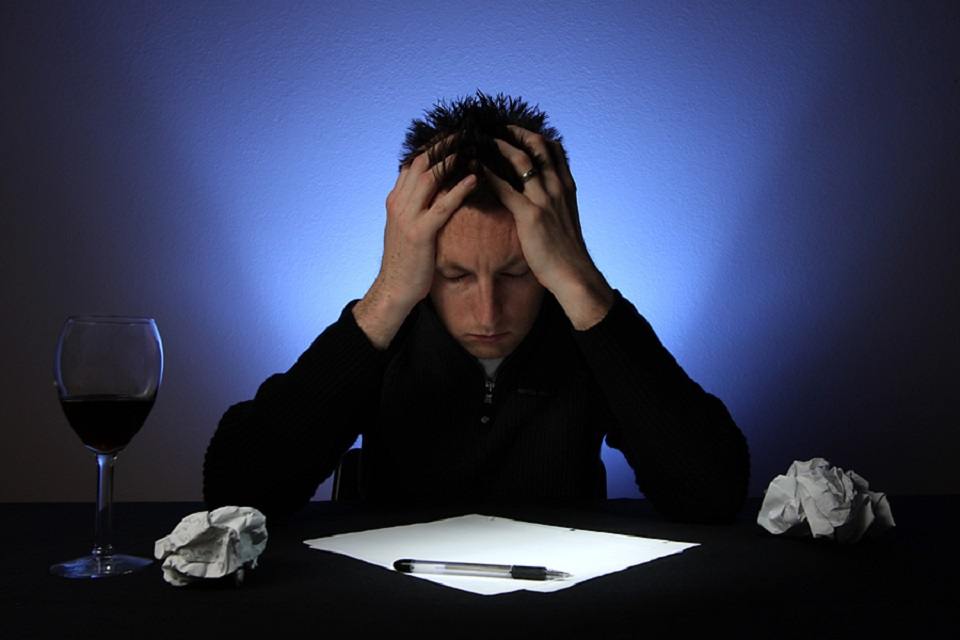
5 Writing Tactics For People Who Think They Can't Write
Brain Test The student can't think of an answer to the test question. - YouTube
Tala's poem to Leyla from the movie I Can't Think Straight - so beautiful. | Love quotes, Quotes inspirational deep, Best quotes![The American School: Why Johnny Can't Think]()
The American School: Why Johnny Can't Think" by Leonard Peikoff - YouTube
Why does my brain think thoughts that are disturbing that I don't want to think anymore? - Quora![Amazon.com: I Can't Think Straight [DVD] [2008] by Sheetal Sheth: Movies & TV Amazon.com: I Can't Think Straight [DVD] [2008] by Sheetal Sheth: Movies & TV](https://images-na.ssl-images-amazon.com/images/I/61IcdvLT1SL._SL1122_.jpg)
Amazon.com: I Can't Think Straight [DVD] [2008] by Sheetal Sheth: Movies & TV
I Can't Think Straight (novel) - Wikipedia
Brain Test Level 142 The student can't think of an answer to the test question Answers Solutions » Qunb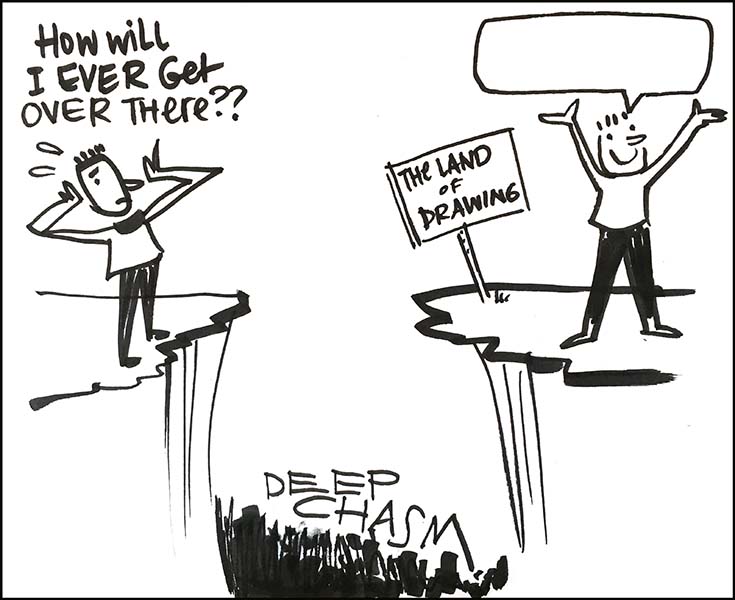
So you think you can't draw? Think again! - The GraphicDistillery The GraphicDistillery/https://www.thestar.com/content/dam/thestar/entertainment/2008/11/21/i_cant_think_straight_nothing_subtle_about_this_script/i_cant_thinkstraight.jpeg)
I Can't Think Straight: Nothing subtle about this script | The Star
Why You Can't Think Your Way to Happiness
Shamim Sarif's Take on Love Beyond Boundaries - The New York Times
3 Ways to Smile When You Think You Can't Smile - wikiHow
You can't think outside the box if you're locked inside it | Science | AAAS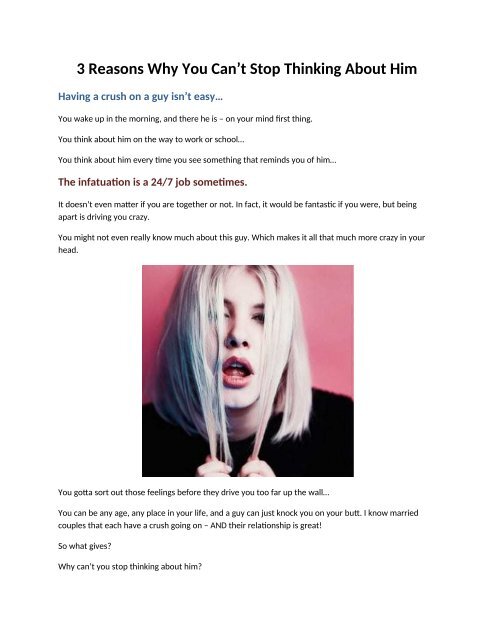
3 Reasons Why You Can't Stop Thinking About Him
I Can't Think Straight (2008) - IMDb![When I]()
When I "can't" "think" of "anything" to "write." | by Oliver "Shiny" Blakemore | The Writing Cooperative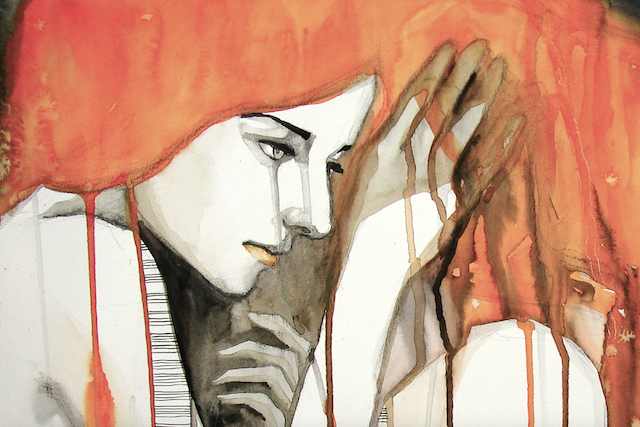
7 Things to Remember When You Think You're Not Good Enough
Watch I Can't Think Straight | Prime Video
People Won't Grow If You Think They Can't Change
5 Reasons some kids can't sit still - Kids First Childrens Services
Film review: I Can't Think Straight | Film | The Guardian
You can't think your way out of PTSD. Try calming your limbic system instead. - The Best Brain Possible
Review: I Can't Think Straight - Slant Magazine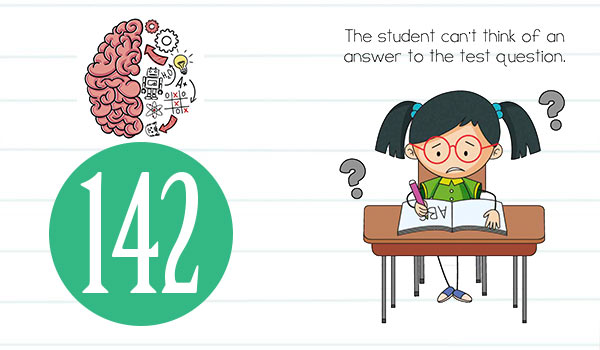
Brain Test Level 142 The student can't think of an answer - Daze Puzzle
So you think you can't sing? It could be all in your mind - ABC News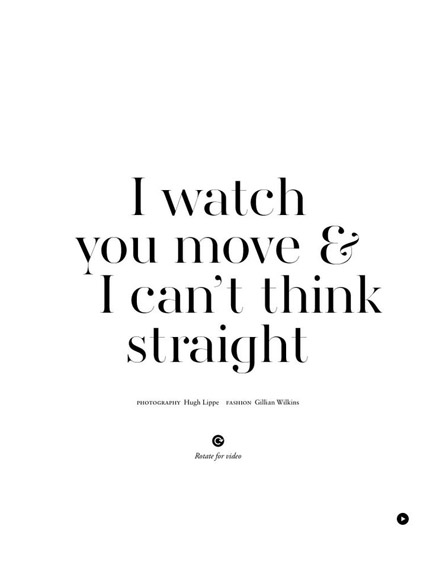
I Cant Think Straight Quotes. QuotesGram
I Can't Think Straight | Films | Wolfe On Demand
The brain as a neural network: this is why we can't get along | by Jeremie Harris | Towards Data Science
Think You Can't Sing? Ask Yourself These 10 Questions | Musical U
I Can't Think Straight (2008) - IMDb
Why can't I stop binge eating? Food on the brain - BodyMatters Australasia
Why You Can't Always Think Positive | Rewire
 Can't Think of Creative Ideas Easily? Try These 5 Tricks to Become an Idea Machine
Can't Think of Creative Ideas Easily? Try These 5 Tricks to Become an Idea Machine










![Amazon.com: I Can't Think Straight [DVD] [2008] by Sheetal Sheth: Movies & TV Amazon.com: I Can't Think Straight [DVD] [2008] by Sheetal Sheth: Movies & TV](https://images-na.ssl-images-amazon.com/images/I/61IcdvLT1SL._SL1122_.jpg)



/https://www.thestar.com/content/dam/thestar/entertainment/2008/11/21/i_cant_think_straight_nothing_subtle_about_this_script/i_cant_thinkstraight.jpeg)




















Posting Komentar untuk "why can't i think"